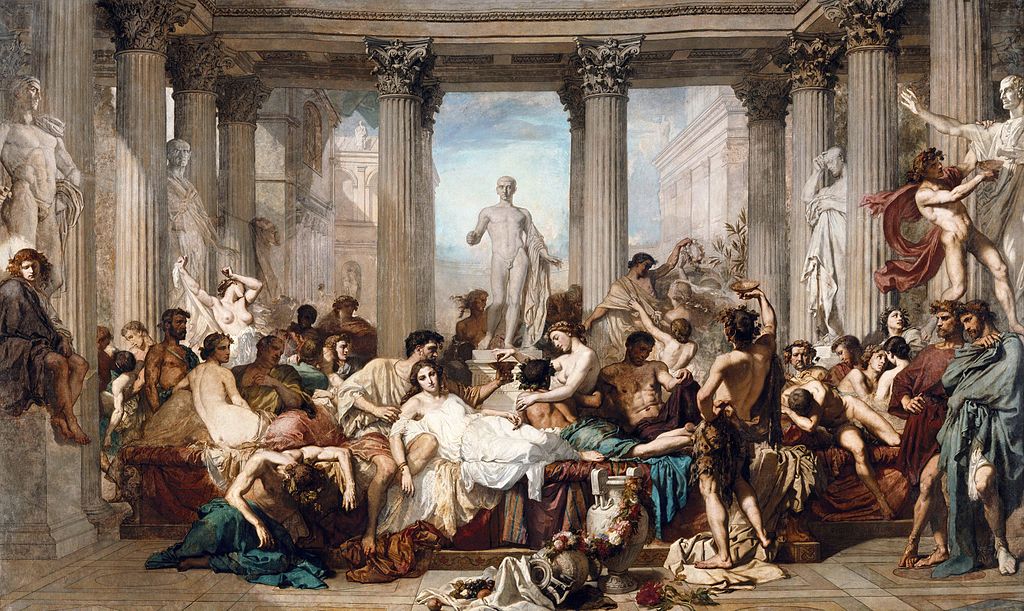
Painting: The Romans In Their Decadence (1847), Thomas Couture
One of the greatest works in contemporary political philosophy is Francis Fukuyama’s The End of History And The Last Man (1992). In it Fukuyama argues that the tendency of history is towards liberalism – and that that’s a good thing. In the book Fukuyama marshals compelling philosophical arguments and historical evidence that this is indeed the case – and I believe the argument was successful.
But how do things look 30 years later? It is my contention that liberalism – the best regime for man; I completely agree with Fukuyama on this point – is in decline and history heading toward a new Dark Age. Why? In a word: Post Modernism. Liberalism is the culmination of a long process of human rationality. But in the last few decades reason itself has come under attack in the West, pulling the foundation out from liberalism. Unless this trend can be reversed, I can’t help but see world history entering a new Dark Age akin to what happened after the fall of Rome.
The driving force behind Post Modernism is a hatred of Capitalism. Capitalism leads to inequality and the Left hates nothing more than inequality. So under the guise of epistemology, the Left has waged an all out war against Capitalism – and it is winning. The home of reason in the contemporary West is the university and countless excellent books have shown how Post Modernism, Relativism and Anti-Capitalism have won control of the universities. Alan Bloom’s The Closing of The American Mind (1989) documented the early stages of this process and John Ellis’s The Breakdown Of Higher Education (2021) shows that it has now triumphed.
Moving from the Ideal to the Material, the consequences of this intellectual conquest are about to felt in an economic collapse likely to be somewhere between the severity of the 1970s and the 1930s. The Fed’s relentless rate hikes have checked inflation – but at the cost of a nasty recession. We are in the early stages of a long period of economic malaise.
But we’ve had recessions – and even a Depression – before and recovered from them all: Why will this one be different? Because the intellectual underpinnings of Classical Economics have been willfully destroyed as well as Capitalism’s reputation. The understanding and will required for continued progress are gone. Perhaps time will run back one day – the title of a novel (1951, 1966) by the great economist Henry Hazlitt about the recovery of economic understanding after a Dark Age.
Note that I am not calling for an imminent stock market crash or economic Depression. I’m sketching out the arc of history. This process has been taking place beneath the surface for decades and it will take decades for it to play out. This is not about what the S&P 500 will do this week.
There is no inevitability to History. Things turn out the way they do because of what we all collectively do. But there are intellectual and economic forces in play that bode poorly for the foreseeable future. Broadly speaking, Reason – long ascendant – is in decline. Until that trend is reversed, the level of civilizational development has peaked for the time being. From Dawn To Decadence (2000) Jacques Barzun titled his magnum opus.